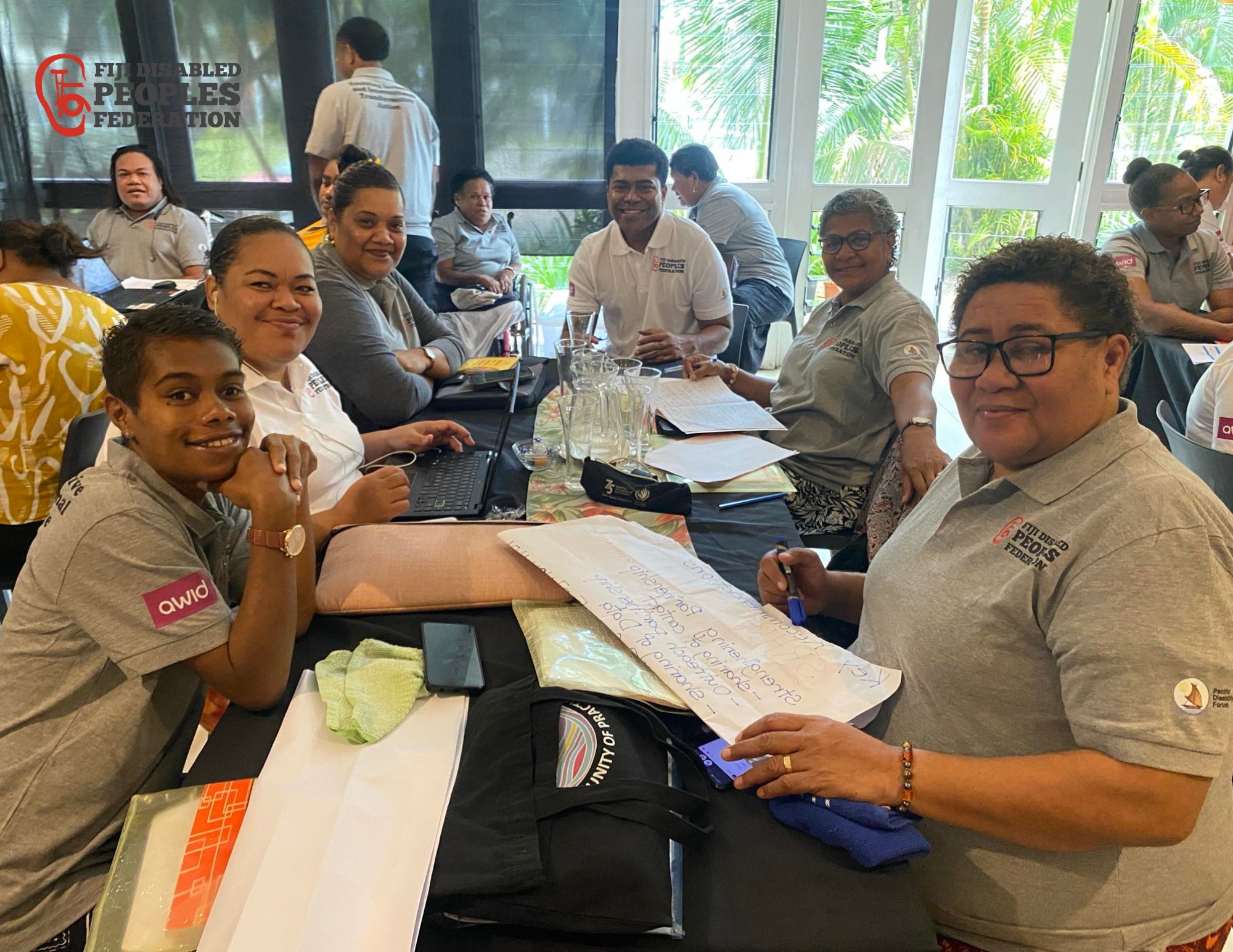In an effort to ensure that the voices of Pacific women with disabilities are heard, the Pacific Disability Forum (PDF) along with the Fiji Disable Peoples Federation (FDPF) and the Association of Women Rights in Development (AWID) convening a Pacific Feminist and Women with Disabilities National Convening, a Disability Rights Advocacy Fund project, bringing together women with disabilities from around the country as well as feminist organizations, Plus Faith Based Organizations
FDPF, AWID, PDF and DRAF are joining together in a project partnership to cultivate deeper relationships and exchange between women with disabilities, feminist organizations, Pacific Conference of Churches and Fiji Council of Churches who are on the journey of strengthening their own practices of inclusion and engagement with disability activists.
This national side event is running concurrently with the 15th Triennial Conference of Pacific Women and 8th Meeting of Pacific Ministers for Women improving accessibility and collaborating on joint advocacy efforts and advancing gender equality in the disability movement.
“Gender mapping is an essential tool to design and understand programmes and policies that will effectively address the needs of women and girls with disabilities.”
This is the call being made by the Fiji Disabled Peoples Federation and the Pacific Disability Forum at the 15th Triennial Conference of Pacific Women and 8th Meeting of Pacific Ministers for Women currently underway in the Marshall Islands.
Speaking at the Forum, Manager Inclusive Development Sainimili Tawake reiterated the continued challenges faced by young girls and women with disabilities in the Pacific. Addressing those present, Tawake spoke on the challenges women with disabilities face in accessing healthcare infrastructure arguing that in order for change to occur, social norms and perceived perspective needs to undergo a change as this disempowers women with disabilities with exercising their SRHR rights.
The Fiji Disabled People’s Federation SRH Project Coordinator, Ana Vakaidia emphasizes the need to “Ensure that the right to legal capacity, as recognized in the Rights of Persons with Disabilities Act (2018) is fully implemented by developing clear guidelines for securing informed consent for medical procedures”. In addition, the Federation is advocating for persons with disabilities, particularly women and girls with disabilities, have the same level of control over their medical health as anyone else and also ensure that proper consent is gained from the women with disabilities themselves before any service is provided. The National feminist with disability convening commenced on Monday 26th and end today.


Comments are closed